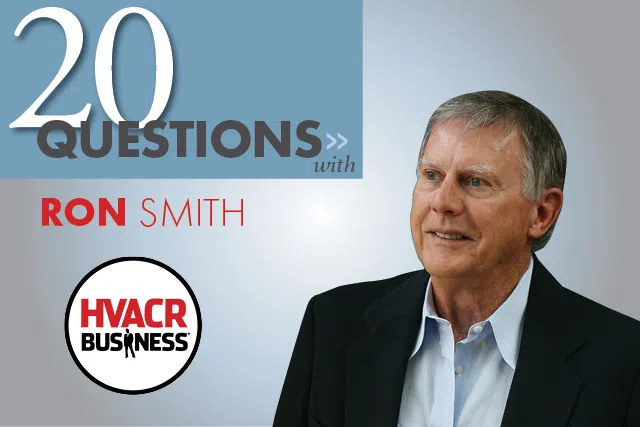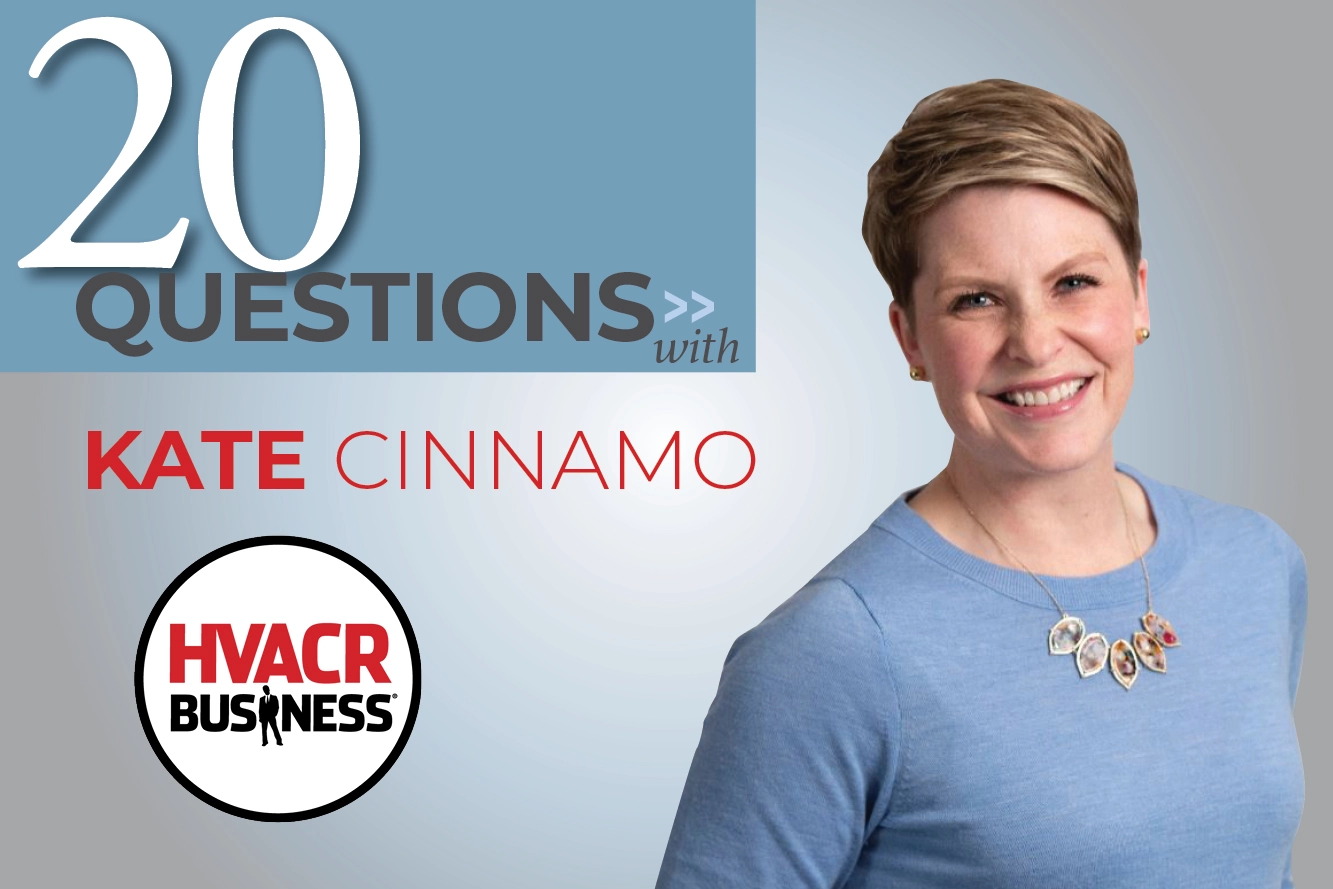Terry Tanker sat down with Ron Smith, contractor, consultant and advisor to HVACR Business. They discussed starting his company, franchising and the state of the HVACR industry.
1. You borrowed $500 to start your first contracting company. How much would it take to launch a new company today?
I was very bold and maybe even foolish to start a company with those limited funds. I succeeded with determination and fear of failure — both are great motivators. I can’t imagine starting a company today with less than $100,000.
2. You sold that first company 21 years later. What did you do immediately following the sale?
My focus was on building Service America, a national HVAC conversion franchising company that we had founded a year earlier.
3. You’ve purchased, improved, and sold several contracting companies. What have you enjoyed most about that?
Proving that a set of processes was transferrable — everything from marketing strategy and coworker relations to our principle of being a customer-focused and market-driven company.
4. You founded Service America (a franchisor) in 1985, and in four years had 100 franchisees. Why isn’t this business model a significantly larger portion of the market?
Conversion franchising is a tough business. Established contractors enjoy their sense of independence and the freedom of operating in their own particular fashion. With that said, there are a few very successful franchisers. In our case, we were an early entry into this business and did not prepare and study franchising as well as we should have.
5. You graduated from Harvard Business School’s Executive Education Program, Managing Organizational Effectiveness. Do you wish you had taken that class earlier in your career?
Yes, but I can’t change it. However, like many others, I make it a point to learn something new each and every day.
6. What positive changes have you seen in the industry over the last three to five years?
Significant technological changes in many areas including the equipment, tools, and the various opportunities with Internet marketing. Another change is the continuing movement towards private branding of equipment.
7. What should have changed but hasn’t?
The biggest failure of most contracting companies is not operating with a proven set of consistent processes throughout the entire company.
8. What are three common mistakes you always fix as a consultant?
The development and implementation of a company-wide training program; correcting the pricing strategy for each product and service; and, proper staffing with the right coworkers.
9. What are the magic bullet(s) that most often improve an HVAC contractor’s business?
There is no magic bullet. It’s simply being serious about your business and doing a multitude of things correctly.
10. You have been a contractor, franchiser, consolidator, and consultant. What have you most enjoyed?
Contracting. But, consulting/coaching is very rewarding when you see that you have helped in significantly improving a company and as a result have helped the owners, leaders, and other coworkers enjoy their work more and have a better quality of life.
11. You wrote the book HVAC Spells Wealth. What prompted you to do so?
I wanted to give back to the industry that I have been in for so long, that I have enjoyed so much, and where I have made thousands of friends. I had no idea the book would sell like it has, and I’m sure it is the best-selling “how to” book ever in our industry.
12. Will you be writing any more books?
Yes. I’m working on a follow-up book to HVAC Spells Wealth and some time ago released HVAC Light Commercial Service Agreements.
13. After all of these years in the HVAC industry, what do you find most rewarding?
First, it’s the roles I still play in the industry and never get tired of. I wasn’t built for retirement. Secondly, seeing companies and individuals become more successful.
14. You talk about DK and DE. What are they?
I learned those from Don Beveridge. He told us that there are only two reasons companies are not more successful. It’s either they don’t know, DK — which has nothing to do with intelligence — or they don’t execute, DE.
15. Where is the industry headed?
Contractors are now more attentive to elements of a complete system rather than just the equipment. There will be more performance- based contracting, and contractors will move towards addressing the entire building envelope, not just the HVAC system.
16. Should contractors meet with other contractors to share and learn from one another?
Absolutely! There are more groups of four to eight contractors who meet two or three times a year and share with one another than ever before.
17. Did you have any mentors?
My father, Emmett, who was an incredible craftsman; my uncle Curt; my first and second manufacturers’ representatives, Clay and Jack; and two consultants — Bill Blees and David Lampman.
18. What is another key item for success?
Continually measuring the company’s performance against our industry’s recognized key performance indicators.
19. How well do manufacturers, distributors, and contractors work together?
Not nearly as well as they could and should. At times it is even an adversarial relationship. All three parties should be on the same team with the focus where it belongs — customers.
20. What is your favorite business book?
In Search of Excellence by Tom Peters and Robert Waterman.






